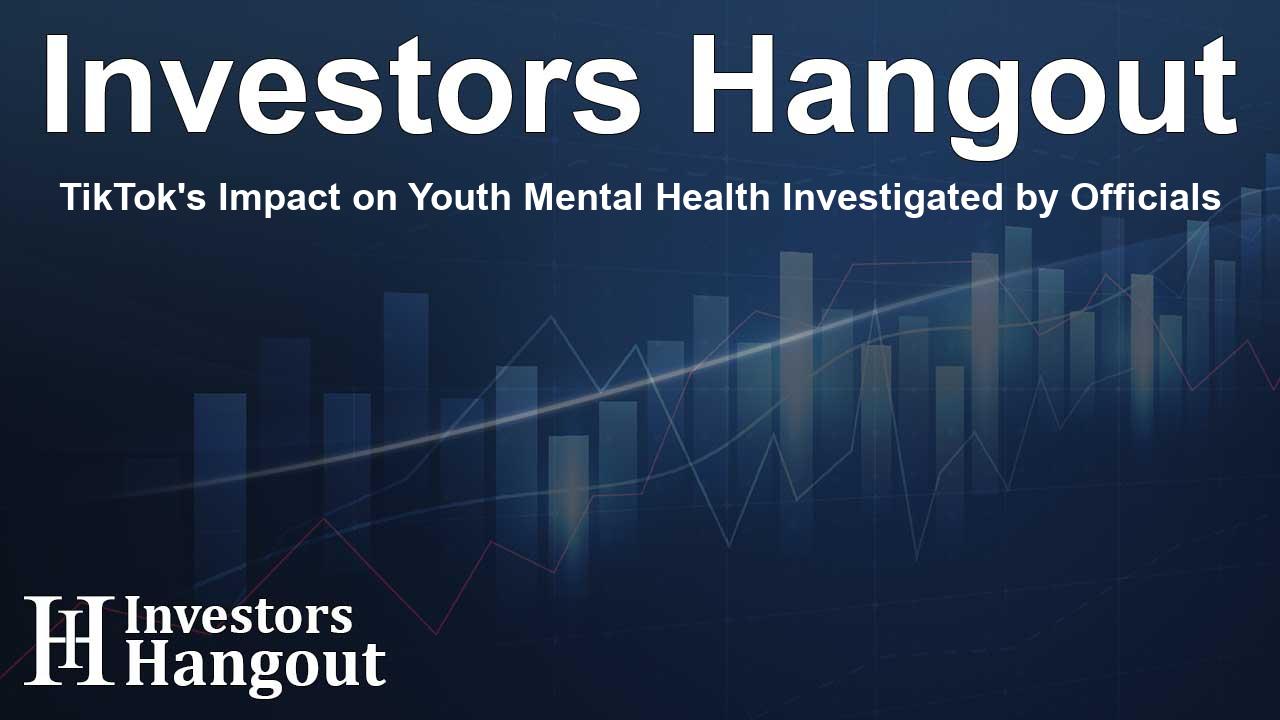TikTok's Impact on Youth Mental Health Investigated by Officials

TikTok Under Scrutiny for Effects on Teen Mental Health
Recent developments have raised serious concerns regarding TikTok's impact on the mental health of teenagers. Reports have emerged indicating that executives at the popular social media platform are aware of the potential negative consequences that their application may have on young users. This revelation stems from a lawsuit involving multiple U.S. attorneys general.
Legal Actions by Attorneys General
Fourteen attorneys general from various states have come together to file legal action against TikTok, alleging that the app poses significant risks to children's mental health. Although a considerable amount of the lawsuit’s content has been redacted, snippets of internal documents have shed light on TikTok’s understanding of its product’s effects on youth. These documents suggest that TikTok itself acknowledges that excessive use of the app could lead to various negative psychological outcomes.
Understanding Compulsive Usage
According to the lawsuit filed by Kentucky's attorneys general, TikTok's internal research reveals a worrying correlation between compulsive app usage and detrimental mental health effects. The findings indicate that excessive engagement with the app can lead to impairments in analytical skills, memory formation, and empathy, as well as heightened levels of anxiety among users. Such insights have ignited further debate on the responsibilities social media companies hold in safeguarding their younger audiences.
Concerns About Usage Limit Features
The lawsuit features additional details regarding a parental control feature that TikTok developed to limit children's daily use of the app. Alarmingly, this feature reportedly only succeeded in reducing usage by an average of 1.5 minutes per day. Furthermore, internal communications reveal that TikTok prioritized the enhancement of public trust through media representation over genuine concerns about user well-being.
Company's Response
In light of these allegations, a TikTok spokesperson expressed disapproval towards media outlets for sharing excerpts from the lawsuit. They described such publications as “highly irresponsible” and claimed that the reporting cherry-picks outdated and misleading quotes, thereby misrepresenting the company's commitment to community safety.
Current Landscape of Social Media and Mental Health
The intersection of social media and mental health has received intensified scrutiny in recent years. Social platforms, particularly those popular among younger demographics, are being called to account for their role in shaping the mental landscapes of youth. Discussions surrounding enhanced regulations and accountability measures for social media companies are becoming increasingly prominent as evidence mounts regarding potential harms.
Future Implications for TikTok
The mounting pressure from legal actions and public concern may lead TikTok to reevaluate its policies and features surrounding youth engagement. As societal awareness grows about the influence of digital media on mental health, companies like TikTok are likely to find themselves at a crossroads regarding their operational strategies. Incorporating more robust measures to ensure the safety of young users may no longer be optional but a necessity in the evolving digital landscape.
Frequently Asked Questions
What are the main accusations against TikTok?
The main accusations are that TikTok knowingly exposes teenagers to risks that can harm their mental health, as highlighted in legal lawsuits.
How does excessive use of TikTok affect mental health?
Excessive use of TikTok has been linked to reductions in analytical skills, empathy, and increased anxiety, according to internal research cited in the lawsuits.
What was TikTok's response to the lawsuit?
TikTok has termed media reporting on the lawsuit as “highly irresponsible,” asserting that it misinterprets their commitment to community safety.
Is there a mechanism for parents to limit their children's TikTok usage?
Yes, TikTok offers a feature that allows parents to limit usage, though it reportedly only reduces time spent on the app by a minimal amount.
What broader implications could arise from this scrutiny of TikTok?
This scrutiny may push TikTok to implement more stringent measures to protect youth users, influencing how social media manages adolescent engagement overall.
About The Author
Contact Lucas Young privately here. Or send an email with ATTN: Lucas Young as the subject to contact@investorshangout.com.
About Investors Hangout
Investors Hangout is a leading online stock forum for financial discussion and learning, offering a wide range of free tools and resources. It draws in traders of all levels, who exchange market knowledge, investigate trading tactics, and keep an eye on industry developments in real time. Featuring financial articles, stock message boards, quotes, charts, company profiles, and live news updates. Through cooperative learning and a wealth of informational resources, it helps users from novices creating their first portfolios to experts honing their techniques. Join Investors Hangout today: https://investorshangout.com/
The content of this article is based on factual, publicly available information and does not represent legal, financial, or investment advice. Investors Hangout does not offer financial advice, and the author is not a licensed financial advisor. Consult a qualified advisor before making any financial or investment decisions based on this article. This article should not be considered advice to purchase, sell, or hold any securities or other investments. If any of the material provided here is inaccurate, please contact us for corrections.
